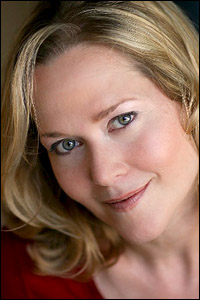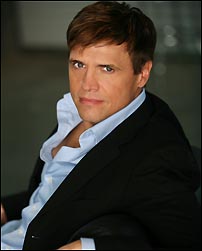
PS Classics is calling it "a recording over twenty years in the making." The album — which began recording in 1990 under the baton of conductor John Mauceri, originally for another label — was completed only this past winter. The release date is June 21.
A result of the late Mrs. Ira Gershwin's efforts to preserve the great Gershwin scores that predated the advent of the original cast recording, the 1930 Broadway score of Strike Up the Band was restored and partially recorded during a period that also yielded studio cast albums of the Gershwins' Girl Crazy; Lady, Be Good!; Pardon My English; Oh, Kay! and a two-disc Strike Up the Band representing the score as heard during the show's 1927 pre-Broadway tryout, when it closed before reaching Broadway.
The now-dawning 1930 version of Strike Up the Band was partially recorded at that time, but did not go through post-production or get released. The 1927 and 1930 versions of the same title were recorded at the same time, using the same cast. Only the former was released.
Work on the recording of the 1930 score recommenced this winter under the supervision of original producer Tommy Krasker, co-founder (with Philip Chaffin) of PS Classics.
The recording features Brent Barrett, Don Chastain, Rebecca Luker, Jason Graae, Beth Fowler, Charles Goff, Juliet Lambert, Jeff Lyons and James Rocco, plus a 16-member chorus, a tap-dancing ensemble and an orchestra of 28. The recording is being released with the support of Michael Strunsky, Robert Kimball and Michael Owen — president, artistic advisor and archivist, respectively, of the Ira and Leonore Gershwin Trusts — and Betty Auman, of the Music Division of the Library of Congress.
| |
 |
|
| Rebecca Luker |
"Legend has it that [1930 book writer] Morrie Ryskind watered down George S. Kaufman's original [1927] libretto," Krasker told Playbill.com. "In fact, most of the satire is still there in the 1930 version. Ryskind's key move was to relegate the war plot to a dream sequence, which made it more palatable to audiences of the day. It also allowed for a traditional happy ending, unlike the 1927 version, which ended on a dark note that audiences found off-putting."
Krasker said, "We always intended to return to Strike Up the Band, but never did. It wasn't until last year, when we were doing Ira's Life Begins at 8:40 at the Library of Congress, that the idea emerged of finally completing Strike Up the Band. But going back and resuming work was a challenge; the work lay partially completed, in a recording format that's long out-of-date, with dozens of reels encompassing hundreds of takes. We had to round up actors to finish vocals, and sift through edit notes over 20 years old as we mixed down something recorded in a studio that no longer exists, in a format no longer in practice. But with the incredible support and cooperation of the Ira and Leonore Gershwin Trusts and the Music Division of the Library of Congress, we were able to make it happen. It was a tough yet wonderful and rewarding undertaking."
He added, "It's particularly gratifying for me because this album marks PS Classics' hundredth release. Philip [Chaffin, co-founder of PS Classics] and I wanted to do something special for our 100th album — I can't imagine anything more special than this."
| |
 |
|
| Brent Barrett |
George Gershwin (1898-1937), came to fame with the song "Swanee," popularized by Al Jolson. Through the 1920s and 1930s, he and his brother, Ira, were Broadway’s dominant songwriting team with a succession of hit musicals, including Lady, Be Good!; Oh, Kay!; Funny Face; Strike Up the Band; Girl Crazy; and Of Thee I Sing. In the last year of his life, he worked with Ira on the Fred Astaire films "Shall We Dance" and "A Damsel in Distress." Gershwin was also a renowned composer of concert music, with works such as Rhapsody in Blue, Concerto in F and An American in Paris. Porgy and Bess, his 1935 "folk opera," is now a staple of the operatic repertoire.
Ira Gershwin (1896-1983), the first songwriter to receive a Pulitzer Prize (for Of Thee I Sing, 1932), wrote hundreds of songs for Broadway and Hollywood with his brother, George. He also collaborated with other major composers, including Harold Arlen, Jerome Kern, Arthur Schwartz, Kurt Weill, Harry Warren, Burton Lane, Aaron Copland, and Vernon Duke. During his career, Gershwin was nominated for three Academy Awards for Best Song ("They Can’t Take That Away from Me," "Long Ago (and Far Away)," and "The Man That Got Away"). He penned contributions to Porgy and Bess (1935), and his selected lyrics are seen in the book "Lyrics on Several Occasions," an annotated 1959 compendium of his lyrics. Knopf also published his complete lyrics.
Visit www.psclassics.com.










